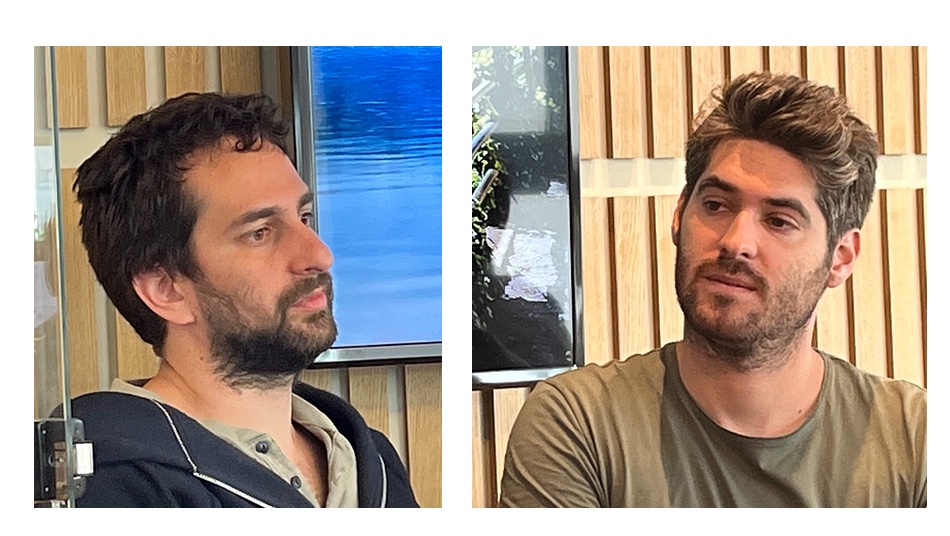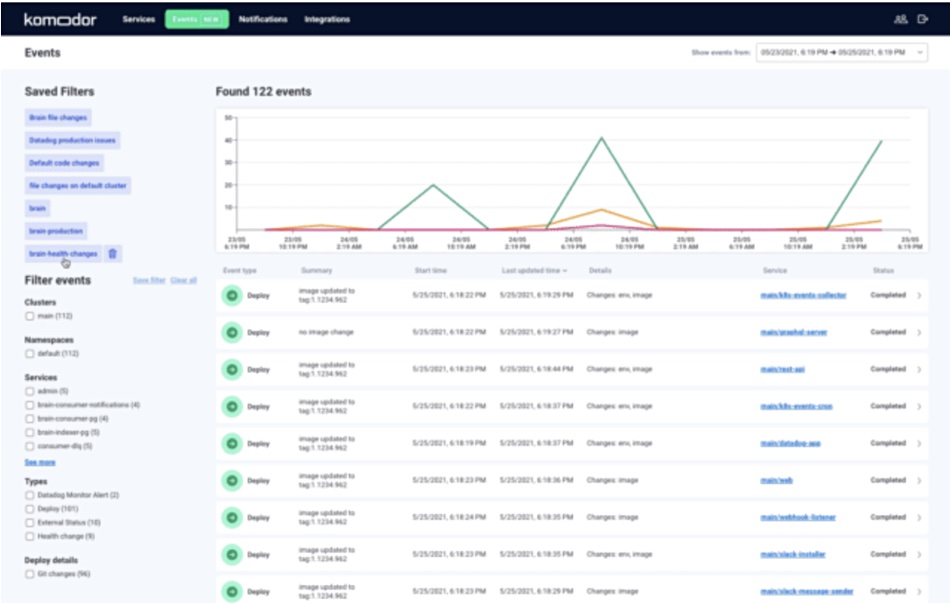Blistering. That’s the best way to describe the pace of business development at Kubernetes troubleshooting startup Komodor.
Kubernetes growth is exploding on the back of DevOps. Stateful container storage players, working with CSI plugins or storage containers, can find diagnosing and fixing Kubernetes infrastructure problems daunting – multiple separate tools, each with its own interface, are needed to look into aspects of the infrastructure. The challenge is to organise the different pieces of information into a coherent picture, check that out, then work out how to fix the problem. DevOps people using Kubernetes need an integrated master tool to help them diagnose and fix faster.
This is what Komodor is developing.
Komodor marketing VP Igal Zeifman told a Tel Aviv IT Press Tour audience: “The Kubernetes ecosystem is uncharted. Kubernetes troubleshooting usually involves many tools, support tickets and escalation. Komodor brings the tools together and enables DIY troubleshooting.”
The company was started in June 2020 in Tel Aviv by CEO Ben Ofiri – a former Google project manager and engineer – along with CTO Itiel Shwartz – a software engineer with a stint at eBay in his CV.

Their ideas convinced angel investors to stump up $4 million and the Komodorans set about writing code for benevolent agent software – a data collection engine that would sit in a customer’s Kubernetes cluster and map the local environment and its history of changes to the microservices within. They also produced integration code – an automation engine that would call the various diagnostic and monitoring tools in the Kubernetes ecosystem, like DataDog and Grafana, interpret their output, and present the results to the user through a smart dashboard along with recommendations for what to do next.
The intent was for their app to review all the data, understand the context, and enable developers to troubleshoot. Often when a problem occurs in a running environment it has been directly or indirectly triggered by one or more changes in that environment. Komodor’s app helps a developer understand which elements in a microservices environment have changed over time and relate them to problematic issues. Then the developer can find out what the changes involved and tease out the root cause.

This then facilitates remediation, saving developers time – 30 hours per week for one customer. Early results were encouraging and customer numbers grew. It became clear to Ofiri and Shwartz that they had a facility that was in demand. Although other suppliers like Sysdig offered similar features at first glance, they were not exclusively focused on Kubernetes, and Komodor was of greater help to developers. Gartner recognized the company as a Cool Vendor in 2021.
In early 2021 it became clear that they needed more funds to hire engineers, get a larger office, and grow. Talks with VCs and industry figures resulted in a $21 million A-round in May 2021, just 11 months after starting the company. The VCs were Accel, Pitango, and NfX. Komodor now has 18 employees and dozens of customers in North America, South America, and Europe, including Intel, Lacework, and Varonis.
Basic pricing is $10/node/month for up to 250 nodes (servers). Assume 36 customers each with 50 nodes and we have $(36 x 50 x 10 x 12) revenue per year, or $216,000 in a little under 24 months after starting operations. Asked about the size of Komodor’s total addressable market, Ofiri said it was as big as the DevOps community, as big as the cloud, with every company needing to have modern software features. “It’s incalculable,” were his words.
Komodor is not producing hardware or even monolithic software. Its own DevOps people use its software to speed in-house development – eating their own dog food. It can scale very quickly.








